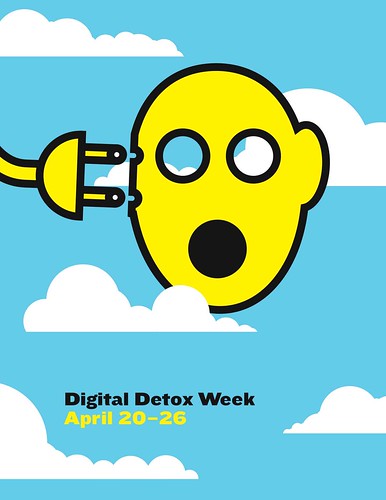Alright, this post is going to be a reaction to an article published my Cracked.com. Cracked is known to do many lists similar to this. Usually I'll just read them, letting them slide if I disagree with them. This time is not such a case because it's so very frustrating to read this because they make such a faulty conclusion based on these studies. The article is titled 5 Psychological Experiments That Prove Humanity is Doomed.
The introduction is equally ridiculous as the rest of it: "Psychologists know to be careful ... because [they're] never sure what [they'll] find in there." Right. Specifically Psychologists? Not biologists, chemists, physicists, environmental sciences, economics, nor sociology? Oh, that's right. Psychology is somehow set apart because it studies people directly and can come across scary things that apply directly do us (unlike the rest just listed).
Experiment #5. The Asch Conformity Experiment
This experiment, if anything, proves that humanity will be more likely to survive. As much as we don't like to admit it, conformity is a good thing for a species' survival. Think about it: humans are communal beings who rely on one another to survive. If this weren't true, we would all be doing whatever we damn well please, and there would be no society or group to speak of. That kind of framework would ultimately lead to our destruction and we would be picked off by more organized groups of predators, or ones that were physically stronger. Sure, if we did that from the get-go, we could've become lone predators, but then we wouldn't be humans, would we? Furthermore, some participants did hold out given the immense social pressure for this experiment, despite the obvious signs of anxiety that manifested. If you're so anti-conformity to think that conformity equates to doom, your hope lies within these people.
Experiment #4. The Good Samaritan Experiment
Alright, this one may prove their case a bit more than the last one. Here, though, the study was most likely run in western society. Why does this matter? We're very individualistic in the West. Generally speaking, people believe that we get what we deserve; hard work and perseverance wins out no matter what! Plainly speaking, this is a load of shit, but that's another post altogether. My point here is that people with such a worldview will be less likely to help someone in need when they don't have the luxury of time to spare, despite being seminary students (not that priests-in-training are especially moral, anyway). A cross-cultural study of this has probably been done, but I don't feel like digging through archives to find it. Needless to say, people don't feel responsible for things that they aren't directly involved in.
This is related to the old moral dilemma: You're standing at a switch in a railway station. If you don't throw the switch, 10 people are going to die; If you throw the switch, only 1 person will die because it'll change the track that the train will go on. When presented with this problem, the majority of people will flip the switch. Now we change the situation: 10 people are still on the tracks, but instead of standing at a switch you're standing by a really large fat man. You can guarantee that this fat man will stop the train enough to save these 10 people; Do you push him onto the tracks? Most people say no, despite the same outcomes present are the same as last time.
Experiment #3. Bystander Apathy Experiment
This study also has some merit to their conclusion, but education about this should be able to bring it more under control. Like they teach in First Aid training: take charge, assign specific people to do certain things. If you need someone to call 911 (and you probably will if you're using your mad first aid skillz), you don't yell out "someone call 911!", you say "You! In the Blue shirt! Yeah, you! Call 911!" By doing this, you're assigning 100% of the responsibility on this poor sap, dramatically increasing the chances of the job getting done. Also, you may notice that this experiment was based off of something I covered earlier: the Kitty Genovese tragedy. Bottom line for this experiment: Discovery is the first step to mastery; knowing about this problem is a major step in fixing it. I find their conclusion that we're all seeking reasons to not step in to be faulty. As discussed in the Kitty Genovese post, there are alternative explanations other than people being self-centered assholes who live and let die.
Experiment #2: The Stanford Prison Experiment
This experiment also gives some merit that we're screwed, but it falls into a similar category as experiment #5: It's simple in-group, out-group views where we conform to what we think we need to do to satisfy, and remain in, the group we're part of. Yes, it got out of hand because power corrupts, but this isn't anything new that this experiment had brought to light. It's not like we're often given absolute power with no checks or balances to keep us from doing whatever we please, is it? Unless you're a sociopath, you'll still follow social norms. Ironically, the very fact that we conform to social norms will stop us from doing things like this, generally speaking, because it's not socially acceptable to abuse others in such a way.
Experiment #1: The Milgram Experiments
They come to a faulty conclusion, yet again, due to the fact that conformity is actually a good thing! Sure, when put to use for perceived evil acts, this is be a bad thing. But consider the flip side: when under the rule of someone with good intentions, people will be more likely to do good things instead of evil. As with the prison experiment, social norms will actually stop us from acting like assholes.
By the way, I question the credibility of the puppy torturing experiment they reference at the very end; Doesn't seem like it would get ethics clearance, and would likely get the full wrath of PETA. It's overly simplified to say that "all it takes to get 8 out of 10 people to torture a puppy is to wear a lab coat and ask them to."
Hey! Want to torture a puppy? Right..
My main reaction to this: Even if every experiment they sited showed the darkest sides of humans (and believe me, there are worse ones than these), it wouldn't prove anything. It's all up to interpretation, as any experiment is. Though, you could also say that science doesn't prove anything, it just disproves things and makes certain conclusions more likely.


























